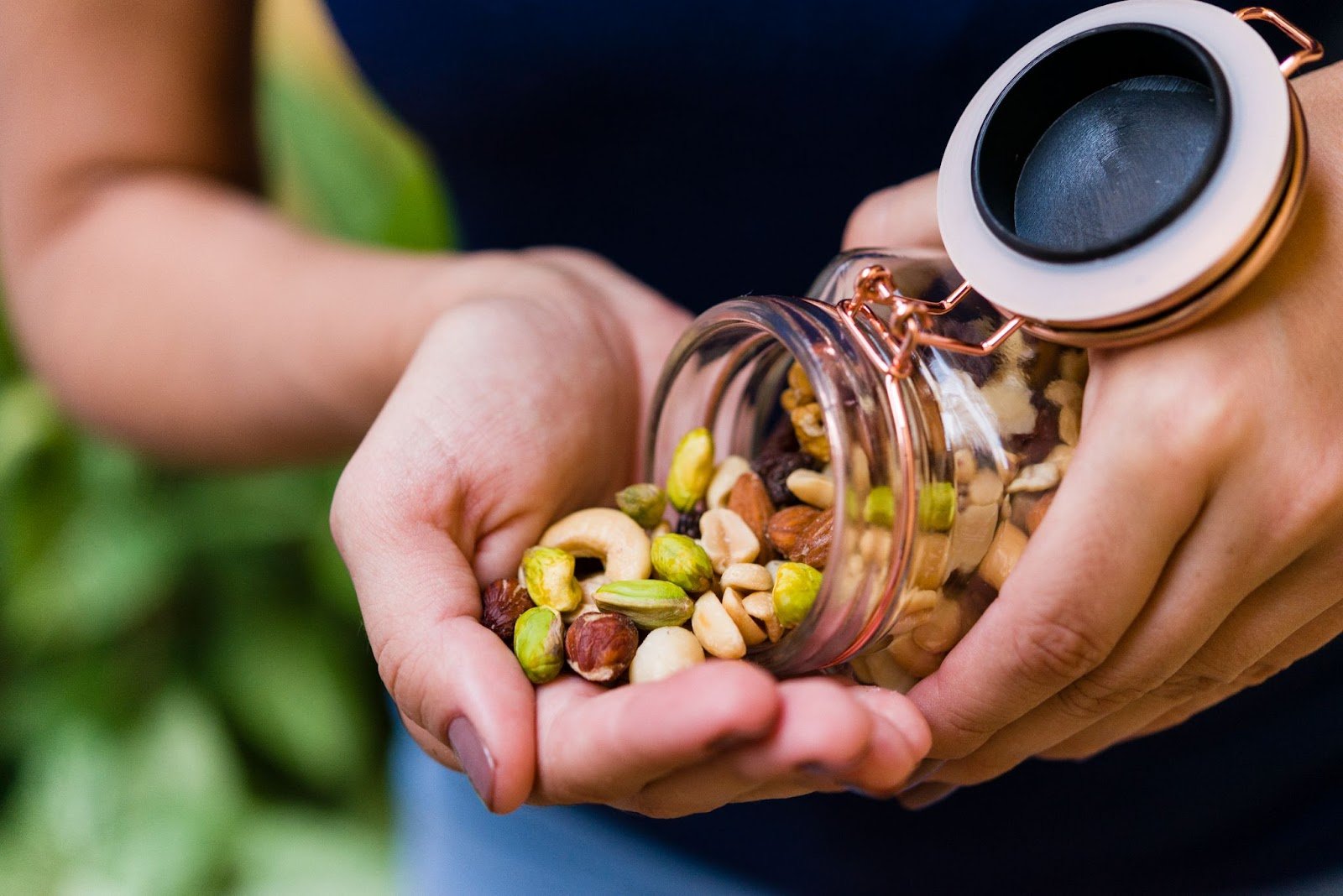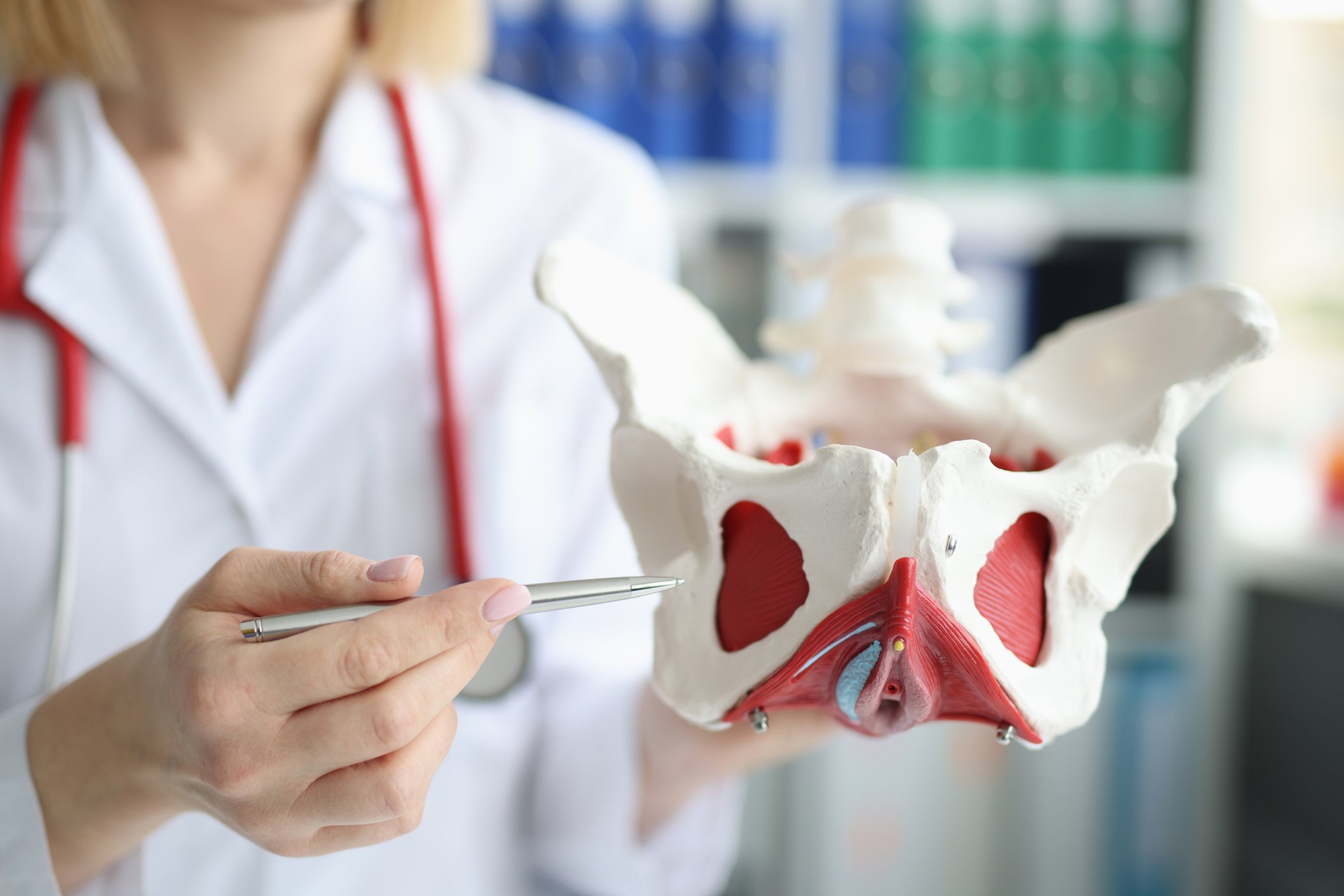You are in your first trimester and feeling miserable; we hear you.
The first trimester of your pregnancy can be a tricky time in which you’ll probably have to contend with the following:
- nausea
- extreme tiredness
- sore boobs
- bloating
- frequent urination
- mood swings
Feeling unwell in early pregnancy is common, and we want to help you with these 8 tips for surviving your first trimester.
1. Eat little, often and bland!

You may not feel like eating during your first trimester of pregnancy. Yet, an empty stomach, as well as a full one, can worsen your nausea and vomiting, which is why ‘grazing’ throughout the day can help keep symptoms at bay. Favour small, frequent meals over fewer, bigger meals.
Whilst, for some women, eating dry foods can help alleviate those waves of nausea, be careful, as eating a lot of bread, pasta, and biscuits can actually increase bloating, worsen constipation and make you feel worse. Rye bread, rice/corn/lentil cakes, sugar-free cereal bars and nuts are good options.
You will also be better off avoiding rich, creamy or spicy foods, which can take longer to digest and may irritate your stomach and even cause heartburn during pregnancy.
Monitoring your symptoms could help you predict when you feel nauseous and allow you to eat something bland just before, which should help stave off those feelings.
2. Rest as much as you can

Extreme tiredness is common during the first trimester. This is why it is really important to rest as much as possible and listen to your body.
So, adjust your bedtime, squeeze in nap times and take time off work if you need to and can do it. Ensure you remain well hydrated and keep your blood sugars stable by grazing on healthy and nutritious foods.
Tiredness and lack of sleep can also make nausea feel worse, so get help with house chores from older children, friends, and family wherever possible. And, last but not least, do some gentle exercise - even better if it is in nature. A brisk walk, gentle jog or yoga class can help lift your spirits, alleviate mood swings, and also improve your sleep.
During your first trimester, your body is working the hardest and changing the most to ensure your developing baby is safe and nurtured, and this uses up a lot of energy. Let us not underestimate this!
3. Try the wonder trio

Peppermint, lemon and ginger can help to combat feelings of nausea. You can drink them in tea, add them to hot water, smoothies and foods, or nibble on some ginger biscuits, for example. You can also use the essential oil of each of them in various ways.
Ginger and lemon are well known for their nausea-relieving properties and are the main ingredients in our Soothing Ginger Melts and our Sick of It! Rollerball
Peppermint essential oil can help relax the gastric muscles and reduce cramping and is found in our Sick of It! Spritz together with lemon essential oil.
Alternatively, try ginger ale with a squeeze of lemon.
4. Keep your breasts supported

Sensitive and tender breasts and nipples are one of many women's first symptoms of pregnancy. To help you stay as comfortable as possible, use supportive vests or non-wired bras made of soft, natural fibres like bamboo, silk or cotton. It helps to sleep in a supportive vest or cropped top, too. If your nipples are very sensitive or itchy, cover them with a reusable breast pad or use a soothing balm over them, like our No Harm Nipple Balm.
5. Make water and fibre your two best friends

Drinking plenty of fluids can help your digestive system continue to work well (at a time when progesterone slows your digestive tract down) and prevent your stools from hardening and becoming dry, making your life easier, and preventing haemorrhoids. It will also help you to feel more energised and sleep better.
Regular small sips may be easier to keep down, and adding lemon, ginger or mint to your drink may also help with nausea. The temperature of your beverage can also affect your tolerance, so experiment with having them warm, cold or hot.
Fibre is essential for healthy bowel movements. Constipation in pregnancy cannot only feel uncomfortable but can lead to
- headaches
- stomach cramps
- bloating
- backache
- lower mood
- haemorrhoids
So, make it a daily promise to eat foods that contain soluble and insoluble fibre.
You can find soluble fibre in:
- oats
- beans & pulses
- barley
- soft fruits like pears, berries and citrus fruits
Eating a bowl of porridge with berries, soups and stews with barley or pulses and having delicious smoothies with your favourite fruits are easy ways to include soluble fibre during your day.
Foods rich in insoluble fibre include:
- wholemeal foods and bran
- brown rice
- fruit and veg that you can eat with their skin
- nuts
- beans
- vegetables such as leafy greens and cauliflower
You can incorporate these foods by adding vegetables to your meals, mixing nuts and beans into your salads and swapping to wholemeal bread and cereals.
6. Be kind and supportive to yourself
Pregnancy hormones, tiredness, nausea, constipation, and new and strange bodily sensations can affect your mood.
“Mood swings” are usually a cry for help when our brains and bodies struggle to adapt to and cope with everything happening around us. Rather than brushing them off as a nuisance, see and treat yourself with compassion.
Take some time off, if possible, have a cry, call a friend, go for a walk in nature or curl up with a book. Let your partner, close friends and family know that there are days when you are struggling, and you may need some extra TLC. Remember to practise some form of self-care every day.
During your first trimester, your body works its hardest and changes the most. In these first 12 weeks of pregnancy, your baby undergoes incredible changes and developments, going from being a little ball of cells to developing a heartbeat and looking a bit like a tadpole at around 6 weeks, to becoming the size of a plum, with formed body parts and internal organs by week 12.
Your hormones need to work overtime to provide an optimal environment for your baby to live and grow until they are born. These hormonal changes can cause you to feel sick and tired and experience heightened emotions.
7. Start your pelvic floor exercises now

A toned pelvic floor is essential for a good quality of life and, in pregnant women, this mesh of muscles can quickly weaken if we don’t consciously and purposefully work to avoid it.
Tips to strengthen and maintain your pelvic floor:
- Lie on your back with your knees bent to start with. Prop yourself up if you are over 16 weeks pregnant.
- Imagine that you are trying to stop your urine flow, holding in gas or poo while holding a tampon inside your vagina. This activates and lifts your pelvic floor, from the front to the back, and helps you recognise the muscle group you aim to strengthen.
- Once you know where to direct your awareness, start with 10 short and fast squeezes.
- Then, try to squeeze and slowly relax the muscles – repeat another 10 times.
- As your pelvic floor strengthens, this ‘slow squeeze & release’ becomes easier. This is the time to add a pause at the peak of your squeeze.
- Start by counting to three and then slowly increase up to a count of 10. This can take time to achieve, so be patient.
- Although your low deep abdominal (tummy) muscles will engage when you target your pelvic floor, you shouldn’t be pulling your tummy in.
- Your buttocks and your thighs should also remain relaxed.
Aim to do pelvic floor exercises daily – ideally three times a day. This way, if you forget a set or a whole day’s worth, you’ll still be practising enough.
Although a strong pelvic floor may not prevent frequent urination (your growing baby will still be pressing on it!), it will help to prevent urinary incontinence during and following pregnancy. Pelvic floor exercises also help prevent pelvic organ prolapse, allow you to carry the extra weight of pregnancy more comfortably, lower the likelihood of having a prolonged second stage of labour, help you to better recover from pelvic girdle pain (PDP) post-birth and improve your sexual satisfaction.
8. Take your vitamins!

We know that supplementing with folic acid (folate in its natural form) and vitamin D during pregnancy is essential for a healthy pregnancy and your baby’s development.
Yet, taking a good quality supplement can help you feel better and safeguard your nutritional needs when you are sick, picking at your food and feeling exhausted.
At such a critical and demanding time, deficiencies in some vitamins and minerals can interfere with the healthy development of your unborn baby and negatively impact your own health. Yet, ensuring an optimal intake of essential micronutrients can be challenging to achieve through diet alone.
This is why at My Expert Midwife, our team of midwives, dietitians and an obstetric consultant developed a natural and evidence-based formula to support the needs of your unborn baby and, very significantly, yours, too. Our formula can help to regulate your hormones, manage fatigue, maintain adequate iron levels, strengthen your immune system and support your body as it grows a new little person. Learn more here.
Summary
Your first trimester can be a time of excitement and lots of questions. It can also be a time of massive changes which pose significant demands on your body and can cause many challenging symptoms. Above are some brilliant tips to help you cope with and manage some of the most common symptoms.
It is never too early to start preparing for labour, so look at the step-by-step guide our midwives have created to help you prepare and optimise your maternity care. It is packed with helpful information and tips on preparing for birth, delivered in a friendly and easy-to-read format. Our unique pregnancy range also offers solutions to many pregnancy ailments and needs to help you feel like you again.







